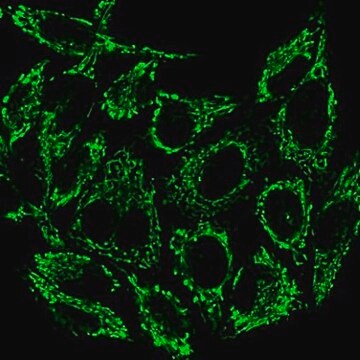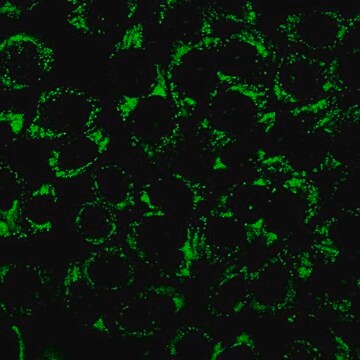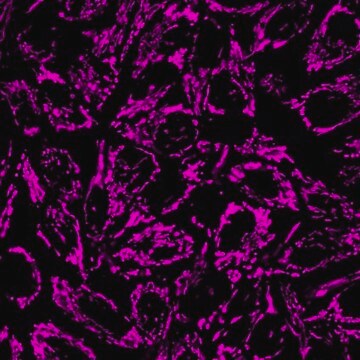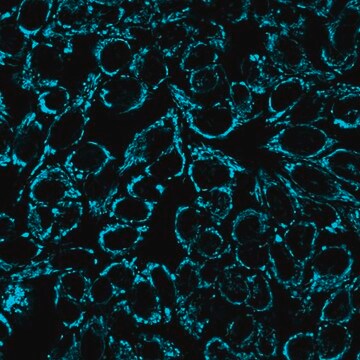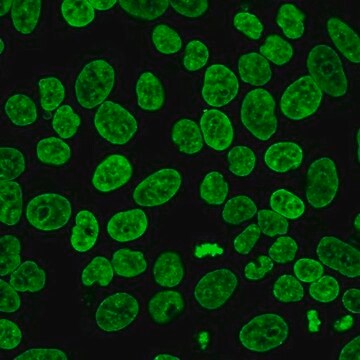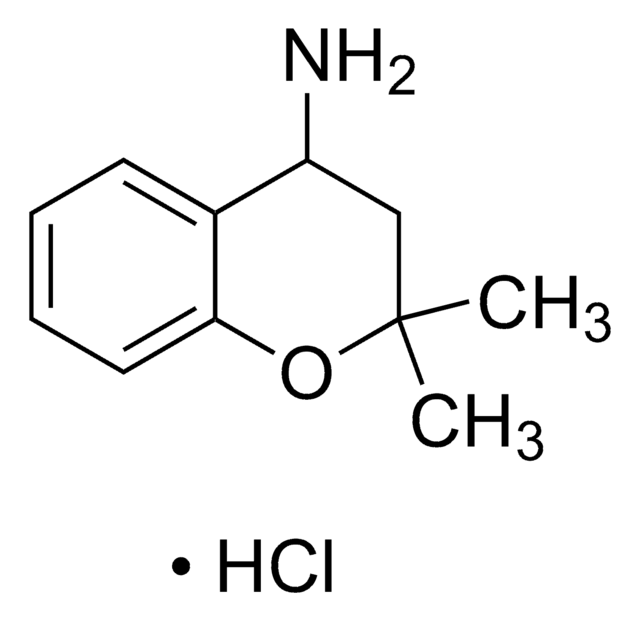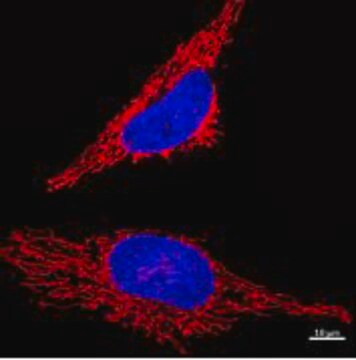CS0390
Mitochondria Staining Kit
1 kit sufficient for 40 tests (of 5 mL cell suspensions), 1 kit sufficient for 200 tests (of 1 mL cell suspensions)
Synonym(s):
JC-1 dye
About This Item
Recommended Products
Quality Level
usage
kit sufficient for 200 tests (of 1 mL cell suspensions)
kit sufficient for 40 tests (of 5 mL cell suspensions)
packaging
pkg of 1 kit
storage condition
dry at room temperature
technique(s)
flow cytometry: suitable
protein staining: suitable
fluorescence
λex 490 nm; λem 530 nm (green) (JC-1 monomers)
λex 525 nm; λem 590 nm (red) (JC-1 aggregates)
application(s)
cell analysis
detection
detection method
fluorometric
shipped in
wet ice
storage temp.
2-8°C
General description
Application
Features and Benefits
- A fast, simple, and convenient method for staining and assaying mitochondria intactness
- Contains all the reagents required for the detection of changes mitochondrial inner-membrane electrochemical potential
- Contains the antibiotic valinomycin, which can be used as a control agent that prevents JC-1 aggregation
- The shift in fluorescence is clearly detectable in both green and red channels
- Suitable for adherent cells as well as cells in suspension
- Has been tested with Jurkat, U-937, HeLa, NIH3T3 cells
- The fluorescence signal can be observed by fluorescence microscopy or measured by flow cytometry
Kit Components Only
- DMSO 1 mL
- JC Staining Buffer 5X 120 mL
- JC-1 1 mg
- Valinomycin Ready Made .1 mL
Storage Class Code
10 - Combustible liquids
Certificates of Analysis (COA)
Search for Certificates of Analysis (COA) by entering the products Lot/Batch Number. Lot and Batch Numbers can be found on a product’s label following the words ‘Lot’ or ‘Batch’.
Already Own This Product?
Find documentation for the products that you have recently purchased in the Document Library.
Articles
Oxidative stress is mediated, in part, by reactive oxygen species produced by multiple cellular processes and controlled by cellular antioxidant mechanisms such as enzymatic scavengers or antioxidant modulators. Free radicals, such as reactive oxygen species, cause cellular damage via cellular.
Our team of scientists has experience in all areas of research including Life Science, Material Science, Chemical Synthesis, Chromatography, Analytical and many others.
Contact Technical Service